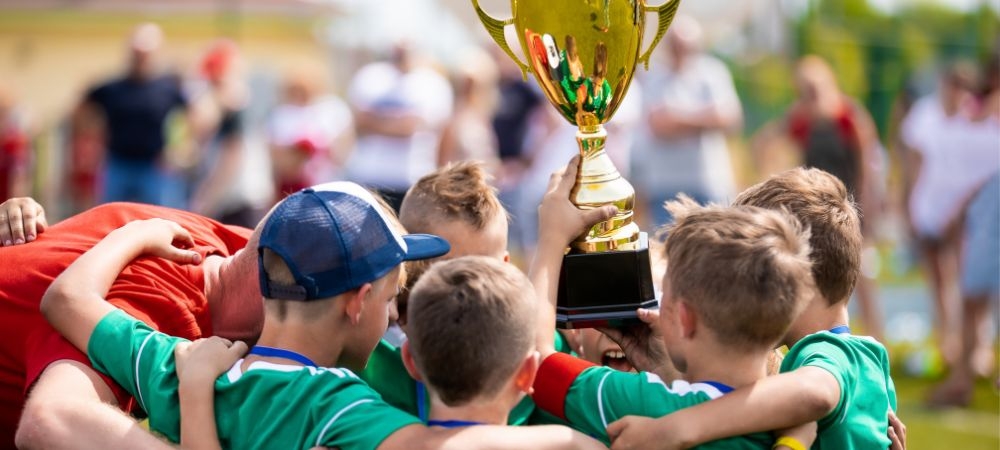

Oh boy, let me tell you about the importance of mental preparation in team sports. It's something that often gets overlooked, but wow, it's crucial! You see, when it comes to performing well on the field or court, it's not just about physical strength and skills. Mental readiness plays a huge role too.
First off, let's talk about focus. If you're not mentally prepped, distractions can easily throw you off your game. Receive the inside story see this. Imagine trying to make a decisive pass while worrying about an exam you have tomorrow – it's just not gonna happen! When athletes take time to mentally prepare, they learn how to block out those unnecessary thoughts and zero in on what matters most during the game.
Another thing is confidence. Oh man, confidence is key in any sport. A player who's mentally prepared will believe in their abilities and won't second-guess their decisions on the field. This kind of self-assurance can make all the difference between winning and losing. Without it? Well, even the most skilled players might choke under pressure.
And let's not forget teamwork. Team sports ain't just about individual talent; they're about working together seamlessly. Mental prep helps players communicate better and understand each other's strengths and weaknesses. It fosters trust among teammates because everyone knows that they're all mentally ready for whatever comes their way.
Also, handling stress – that's another biggie! Sports are unpredictable by nature; things don't always go as planned (oh no!). But if a team is mentally prepared, they'll be more resilient when facing setbacks or unexpected challenges during a match. They won't panic; instead, they'll stay calm and find solutions quickly.
Lastly – visualization! Many top athletes use visualization techniques as part of their mental prep routine. By imagining themselves succeeding before they actually step onto the field or court gives them a sort-of blueprint for success which boosts performance significantly.
In conclusion (whew!), neglecting mental preparation could pretty much sabotage all those hours spent training physically. So yeah folks - don't underestimate its importance! With proper mental readiness alongside physical conditioning? Well...you've got yourself one formidable team ready to conquer anything coming at 'em!
Okie dokie then...remember next time you're gearing up for that big game: train your mind just as hard as your body because both are equally essential parts of being an athlete.
Mental toughness is a trait that's often admired but rarely understood in its entirety. People tend to think of it as something you're either born with or not, but that's far from the truth. You can actually develop mental toughness through various techniques, and these methods don't require you to be some kind of superhuman. So let's dive into a few strategies for building mental resilience.
First off, embracing discomfort is crucial. Life ain't always easy, and that's okay! Instead of shying away from challenges, face them head-on. You're not gonna grow by staying in your comfort zone all the time. Whether it's tackling a difficult project at work or pushing yourself physically through exercise, stepping out of your bubble will make you stronger mentally.
Another technique is setting clear goals and having a plan to achieve them. It's easy to get lost if you don't know where you're going. By setting specific, achievable goals, you give yourself a roadmap to follow. This not only helps keep you focused but also provides small victories along the way that can boost your confidence.
Positive self-talk can't be underestimated either. It sounds kinda cheesy, doesn't it? But what we say to ourselves matters more than we'd like to admit. When faced with adversity, tell yourself "I can handle this" instead of "I can't do this." These little affirmations can go a long way in building mental toughness.
Visualization is another powerful tool in your arsenal. Athletes use it all the time-imagining themselves crossing that finish line or scoring that winning goal. By visualizing success before it happens, you're training your brain to believe it's possible.
One might think multitasking helps build resilience by making us juggle multiple things at once; however focusing on one thing at a time actually improves our ability to deal with stress better over time. Concentration and mindfulness help us stay present and manage anxiety more effectively.
Don't underestimate the power of rest and recovery either! Mental toughness doesn't mean working yourself into the ground without taking breaks. In fact, knowing when to step back and recharge is a sign of strength, not weakness.
Also important is surrounding yourself with supportive people who uplift you rather than bring you down. A strong support network provides encouragement during tough times and celebrates with you during victories.
Lastly-and perhaps most importantly-accept failure as part of the process instead of fearing it like the plague! You're not gonna get everything right on your first try (or even second or third), but each failure brings valuable lessons that'll make you tougher in the long run.
So there ya have it-a few practical techniques for building mental toughness: embrace discomfort, set clear goals, practice positive self-talk, visualize success, focus on one task at a time, allow for rest and recovery, foster supportive relationships and accept failure gracefully.
Building mental resilience isn't an overnight miracle; it's more like planting seeds that need nurturing over time before they sprout into something strong and unyielding.
Golf was outlawed in Scotland in 1457 since it was taken into consideration a distraction from military training, just to be lifted by King James IV who became a golf enthusiast himself.
Cricket is thought to have originated as early as the 13th century in the southeast of England and evolved right into the nationwide sport by the 18th century.
The Trip de France, the most popular bicycle race worldwide, began in 1903 and typically covers around 3,500 kilometers (2,200 mi) throughout France and nearby nations.
Table Tennis, likewise referred to as ping pong, was designed in England during the 1880s as a small variation of tennis played indoors throughout the wintertime.
The Role of Coaches and Leaders in Fostering a Collaborative Environment
In team sports, the importance of teamwork and communication can't be overstated.. Without these elements, even the most talented athletes would struggle to find success.
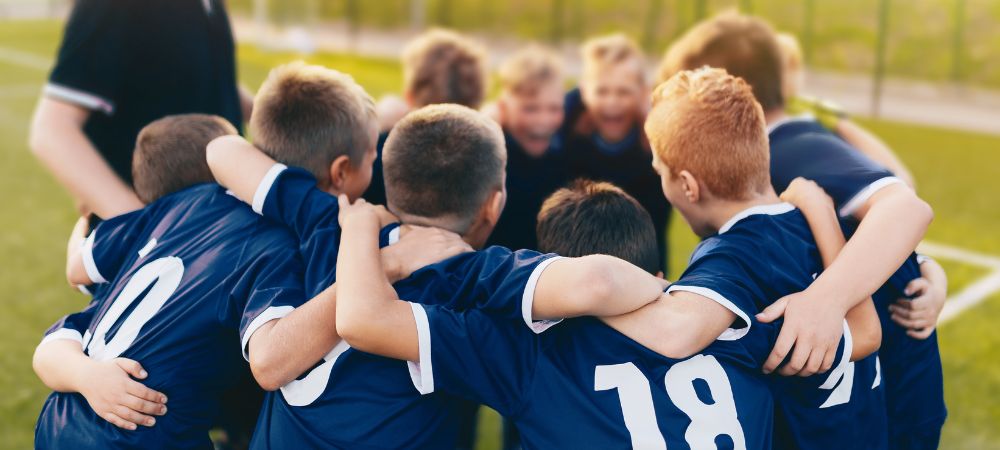
Posted by on 2024-07-08
Coaching styles can dramatically influence team performance, and there's no shortage of case studies that highlight successful implementations.. By looking at different approaches, we get a clearer picture of what works and what doesn’t.
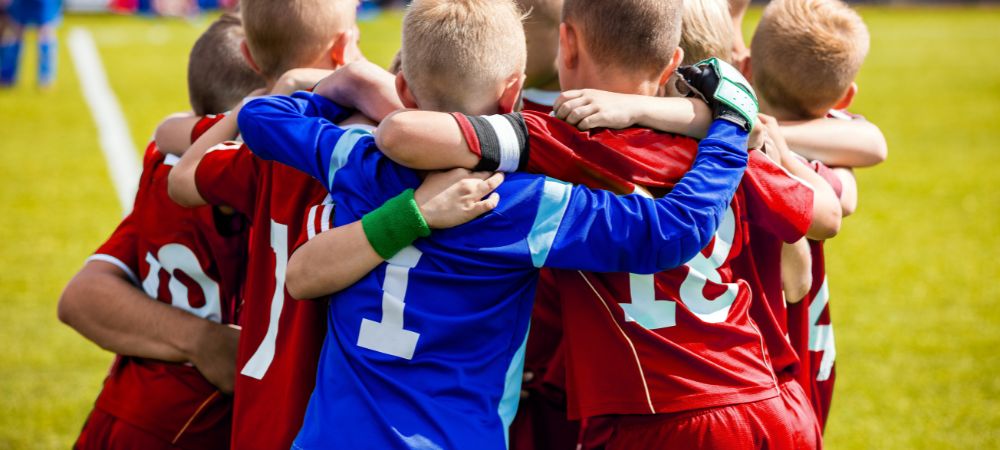
Posted by on 2024-07-08
Sure, here's a short essay on the topic:
---
Strategies for Incorporating Team Sports into Daily Life
Participating in team sports ain't just about having fun or working up a sweat.. There's so much more to it!
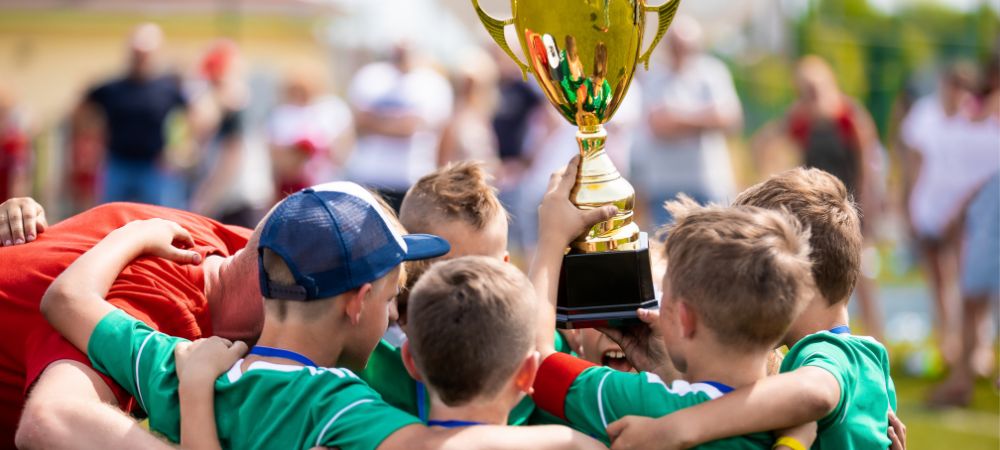
Posted by on 2024-07-08
Visualization and imagery practices are key components of mental preparation, playing a crucial role in various fields, from sports to public speaking. These techniques ain't just about closing your eyes and imagining success; they're about creating vivid mental images that can help you achieve your goals. The power of the mind is often underestimated, but those who harness it effectively can see remarkable results.
Firstly, let's talk about what visualization really is. It's not merely daydreaming or wishful thinking; it's a structured process where you create detailed images in your mind of what you want to achieve. Imagine an athlete preparing for a big game. They don't just think, "I wanna win." No, they picture every move they'll make, every obstacle they'll face, and how they'll overcome them. This kind of mental rehearsal helps build confidence and reduce anxiety.
Imagery practices go hand-in-hand with visualization but have their own unique spin. While visualization focuses more on the visual aspects, imagery involves all the senses – sight, sound, touch, taste, and smell. For instance, if you're preparing for a speech, you'd imagine not only standing in front of the audience but also hearing their applause and feeling the warmth of the spotlight on your skin.
Now don't get me wrong; these practices aren't magic spells that'll guarantee success without effort. They are tools that complement hard work and dedication. There's scientific evidence suggesting that when we visualize an action repeatedly, our brain trains itself as if we're actually performing it. It's like running simulations in your head – practice makes perfect!
However (and here's a bit of reality check), not everyone finds it easy to engage in these practices initially. It takes time and patience to develop strong visualization skills – Rome wasn't built in a day! Some folks might feel silly at first or think it's pointless because they're not seeing immediate results.
But hey! Don't give up too soon! With consistent practice, you'll likely notice improvements not just in your performance but also in your overall mindset. Visualization helps keep negative thoughts at bay by focusing your mind on positive outcomes instead.
In conclusion... oh wait! I almost forgot one more thing: flexibility is crucial here too! You needn't stick rigidly to one method or another; mix things up based on what works best for you personally-everybody's different after all!
So there ya go! Visualization and imagery practices may seem simple on surface level but dive deeper into them-and you'll find powerful tools for mental preparation waiting right there beneath layers of skepticism or doubt.
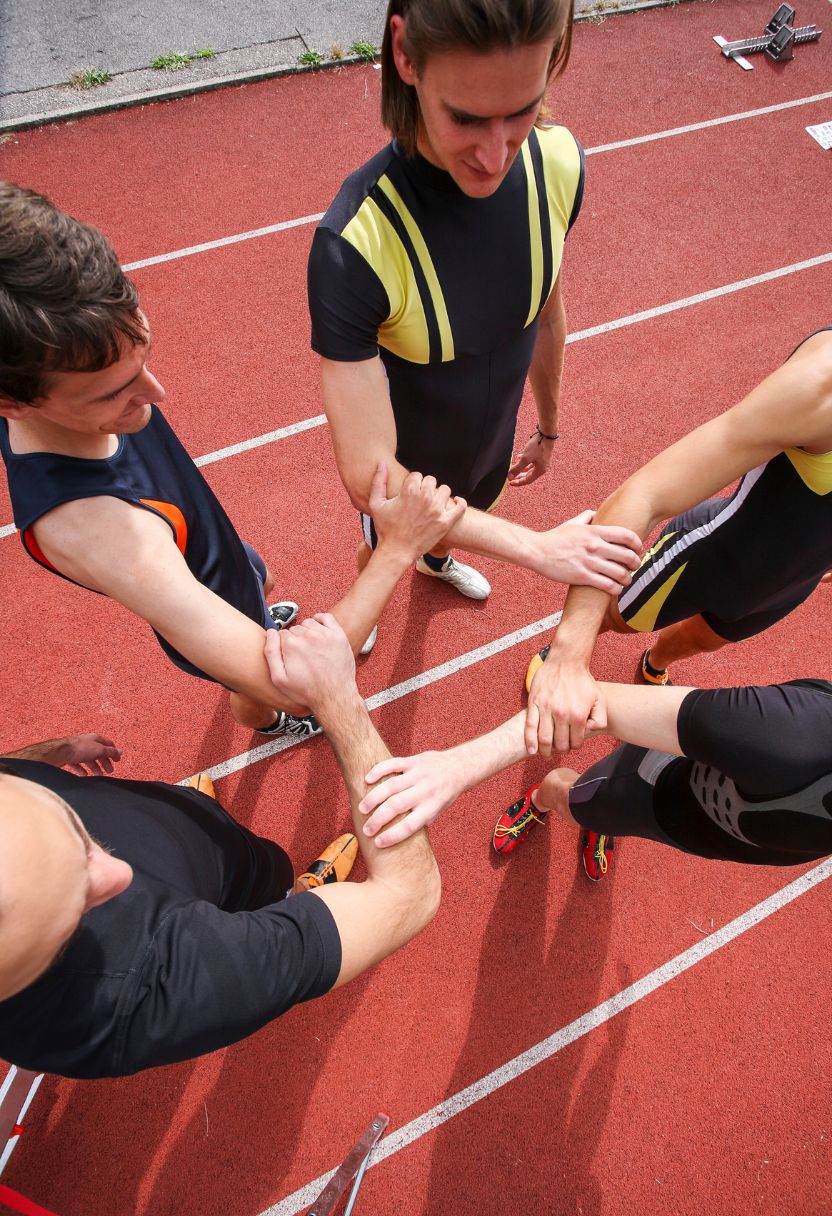

Pre-game Routines and Rituals: Mental Preparation
Mental preparation before any game is vital, not just for professional athletes but even for those who play sports casually. It's not just about physical readiness; the mind plays a huge part in performance as well. One of the most effective ways to get mentally ready is through pre-game routines and rituals. These practices might sound trivial to some, but they're far from it.
Firstly, let's talk about routines. A lot of athletes have specific steps they follow before a game. Maybe it's listening to a particular playlist or doing certain stretches in a precise order. These routines are'nt just habits; they're psychological anchors that help players feel grounded and focused. When you do something the same way every time, it can provide a sense of control and stability.
However, some folks might say, "Oh, that's just superstition!" Well, isn't it? Not exactly. While some pre-game rituals might seem superstitious-like wearing lucky socks or eating the same meal-they serve an essential purpose beyond mere luck. They create consistency and confidence. When an athlete believes their ritual gives them an edge, it often does because of the placebo effect.
Now let's consider what happens if these routines are disrupted. If an athlete can't go through their usual steps, they might feel off-balance or anxious. This shows how deeply mental preparation is tied to performance. It ain't just about going out there and playing; it's about feeling ready to give your best effort.
On top of that, there's also visualization techniques which many athletes use as part of their routine too! Imagining yourself succeeding can be incredibly powerful-it's like giving your brain a rehearsal before the actual event happens.
In conclusion, pre-game routines and rituals aren't merely quirks or superstitions-they're crucial aspects of mental preparation that enable athletes to perform at their highest level. Whether its listening to music or wearing lucky socks, these practices help create a mindset geared towards success by providing consistency and confidence.
So next time you see someone engaged in what looks like odd behavior before a game-don't laugh! They're probably preparing themselves mentally for what's ahead in one of the most effective ways possible.
Stress Management Strategies for Athletes: Mental Preparation
When it comes to sports, people often focus on physical training. But hey, don't forget the mind! After all, athletes ain't robots; they're humans with emotions and thoughts that can go haywire under pressure. So, let's talk about stress management strategies specifically for mental preparation in athletes.
First off, visualization is like magic-but it's not really magic. It's just a fancy way of saying “imagine yourself succeeding.” Athletes who visualize their performance tend to do better because they've already "seen" themselves nailing it. It's not rocket science; it's just practicing in your head before you actually do it. And guess what? It works!
Breathing techniques are another handy tool in the athlete's stress-busting arsenal. Deep breathing isn't just for yoga classes or meditation gurus; it's practical and super effective. When you're standing at the free-throw line or before a big race, taking deep breaths can calm those jittery nerves faster than you'd think. If you don't believe me, try it next time you're stressed out.
Then there's positive self-talk-yeah, talking to yourself but in a good way! Instead of saying "I can't do this," how about flipping the script? Say "I've got this!" It might sound cheesy or even silly at first, but trust me, words have power. Athletes who engage in positive self-talk are less likely to let stress get the better of them.
But wait-don't assume it's all sunshine and rainbows. There's always gonna be setbacks and failures along the way. Learning how to handle these bumps is crucial too. Building resilience means accepting that things won't always go as planned and that's okay! No one's perfect-not even Michael Jordan or Serena Williams.
Another important aspect is having a solid support system. Whether it's teammates, coaches, family members or friends-it helps big time when you've got people cheering you on and providing encouragement when needed most.
Lastly-and I can't stress this enough-rest is vital (no pun intended). Overworking yourself isn't going to help anyone least of all you! Taking breaks allows both your body and mind to recuperate so that when game day rolls around-you're ready!
So yeah guys remember mental prep isn't something extra; it's essential! From visualizations and breathing exercises to positive self-talk and building resilience-all these strategies combined make an athlete mentally tough enough face any challenge thrown their way without breaking down under pressure.
Don't neglect your mind because if anything-it could very well be your secret weapon against stress on the field!
The Role of Positive Self-Talk and Affirmations in Mental Preparation
You know, we often underestimate the power of our own words. Positive self-talk and affirmations can really play a crucial role in mental preparation, even if it doesn't always seem obvious at first glance. It's not just about saying nice things to yourself; it's about creating a mindset that helps you tackle challenges with confidence and resilience.
Firstly, let's talk about positive self-talk. This isn't some fluffy concept - it's actually grounded in psychology. When we engage in positive self-talk, we're essentially reprogramming our brains to view situations more optimistically. You're not just convincing yourself you're capable; you're reminding your brain why you are! It's like having a personal cheerleader inside your head, telling you that you've got this. And hey, who wouldn't want that?
Affirmations work pretty similarly but with a bit of a twist. They're specific statements or phrases designed to promote positive thinking and self-empowerment. If you're constantly telling yourself "I can't do this," guess what? You probably won't be able to! Instead, try flipping the script: "I am capable" or "I will succeed." Sure, it might feel awkward at first - maybe even silly - but over time, those words start sinking in.
Now, I'm not saying that positive self-talk and affirmations are magical solutions to all life's problems. They're tools - important ones nonetheless - but they ain't gonna fix everything on their own. You've gotta put in the work too! However, by incorporating these practices into your daily routine, you can build up mental resilience which will help you face various challenges head-on.
One common mistake people make is expecting instant results from affirmations and positive self-talks. That's not how it works! It takes consistency and patience for these methods to really take hold. So don't get discouraged if you don't see immediate changes.
Also (and here's an interesting point), these techniques aren't only useful for athletes or performers; everyone can benefit from them! Whether you're preparing for a big presentation at work or trying to muster up the courage for something new in your personal life, positive self-talk and affirmations can boost your mental state significantly.
In conclusion-well actually-there's no definitive end-point when it comes to building mental strength through these techniques because it's an ongoing process throughout one's life journey. The next time doubt creeps into your mind (and trust me-it will), remember those simple yet powerful tools right within reach: positive self-talks and affirmations!
So go ahead… give yourself that pep talk!
Developing Focus and Concentration During Competition
When it comes to mental preparation in sports, one of the most critical aspects is developing focus and concentration during competition. It's not rocket science, but it's also not something that happens overnight. Athletes often find themselves struggling to maintain their focus when they need it the most. They might think they're doomed or just not cut out for high-pressure situations, but that's far from true.
First off, let's talk about distractions. They're everywhere! Whether it's the crowd's roar (or lack thereof), a noisy opponent, or even your own thoughts racing through your mind. You can't just wish these distractions away; you gotta learn to manage them. One effective way is by setting short-term goals during the game. Instead of thinking about winning or losing, break it down into smaller tasks like making that next pass or blocking that next shot.
Another thing that's often overlooked is breathing-yes, simple breathing! Taking deep breaths can help calm your nerves and bring your mind back to the present moment. It's surprising how many people forget to breathe properly under stress. And hey, don't beat yourself up if you catch yourself losing focus; it happens!
Visualization techniques can also be incredibly helpful. Picture yourself executing a perfect play or crossing that finish line in first place. These mental images can serve as powerful motivators and keep your mind fixed on what really matters: performing well.
Now, let's address negative self-talk because we all do it sometimes-"I'm gonna mess up," "I'm not good enough," or "Why did I make that mistake?" This kind of thinking ain't doing you any favors! Counteract negativity with positive affirmations like "I've trained for this" or "I got this." It sounds cheesy but believe me, it works.
Lastly, practice makes perfect-or at least better! Incorporate focus drills into your training routine so that concentrating becomes second nature when you're under pressure.
So there you have it-a few practical tips for developing focus and concentration during competition. It's not magic; it's all about practice and persistence. Don't expect perfection right away-and remember-every athlete has bad days too! Keep working on your mental game just as hard as you work on your physical skills, and you'll see improvement over time.
In conclusion, enhancing mental preparation isn't easy-peasy lemon squeezy-but with determination and effort-you'll get there eventually!